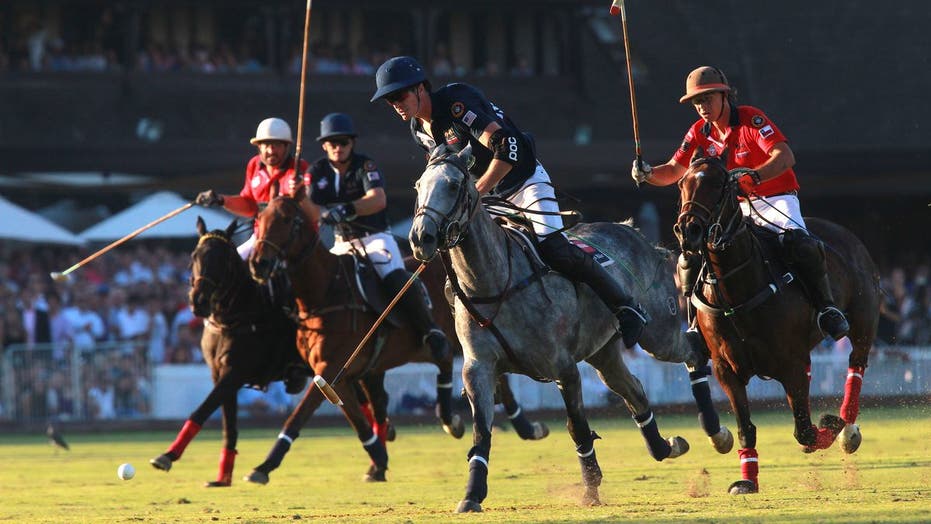“We had our chance,” Felipe Viana, who played on the team representing the United States at the FIP World Polo Championship in Chile told Fox News Latino about the championship match.
Viana, who was raised in Uruguay and came to the U.S. in 2009 to attend college at the University of Virginia, plays the sort of polo that’s competed on horseback, not in a swimsuit.
The U.S., never exactly a dominant force in the game, defeated powers Argentina, Brazil and England and took a 9-7 lead into the last chukker of the final against the host nation, but Chile came back to tie the match at 11.
“In overtime, we pushed the ball deep into their territory, we just weren’t able to score,” Viana said. “Then they countered and did score.”
The Uruguayan-raised Viana played the No. 3 position—traditionally the spot where the team places it’s best playmaker who can execute long passes, push up on offense when needed and control the middle of the field.
He is one of a number of players targeted by the United States Polo Association (USPA) in an attempt to recruit young, talented players.
The effort seems to be paying off. Together Viana, Jesse Bray, Remy Muller and Patrick Uretz nearly took the title—something that the U.S. squad has only done once before, in 1989.
“Out of the four of us in the U.S. lineup,” Viana said, “three were recruited in 2011, and the other in 2012. The USPA helps us with opportunities, money, mentoring. Programs like this take a while to flourish.”
At Virginia, Viana won a national collegiate championship and attracted the attention of the Uruguayan team as well. “They called me, but it wasn’t part of my thinking,” he admitted.
“Once the U.S. called, there wasn’t another choice.”
Viana picked up the game from his father, sort of. The family owned a ranch, and while his father, a U.S.-born lawyer, never played, he fell in love with the game.
“He waited until I was 6 or 7 to get me lessons,” Viana told FNL. “Until I was strong enough to hold the mallet.”
That’s not the only way his father pushed the budding star.
“I didn’t want to go to college,” he admitted. “Most polo players barely finish high school. When I got letters of acceptance to Virginia and Cornell, I threw them in the trash. He pulled them out.”
Then Papa Viana sat Felipe down for a talk. “If you graduate from college,” his now appreciative son recalled, “I will support you all the way. If not, here’s $1,000 and a plane ticket wherever you want to go.”
Of course, proud father—and mom—were at the San Cristóbal Polo Club, among the 10,000 other fans who showed up for the final.
The club, the horses (which were donated by local teams and stables), the fans—every part of the competition was a “dream” for Viana, except for one.
“I’m still bummed about losing,” he said.
“Many of the people at the Championships seemed to think that the U.S. team put on one of the best displays of polo in the history of the event,” Viana said. “We beat the best, and if we had played Chile 10 more times, I believe we would have won all of them.”

